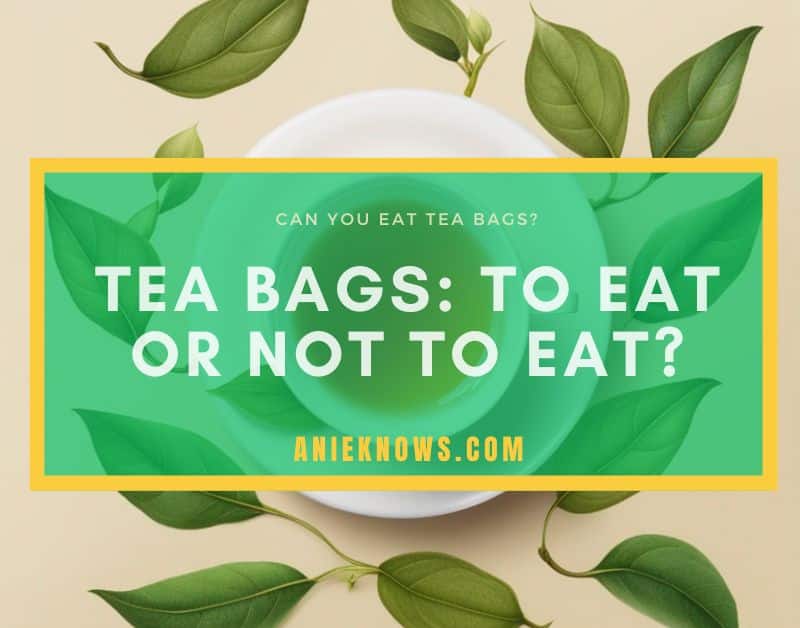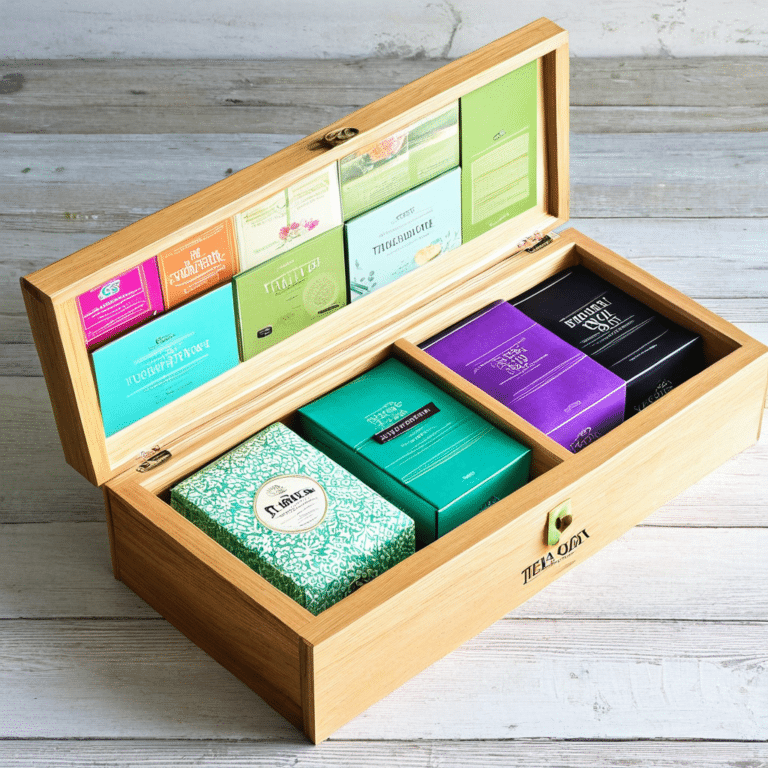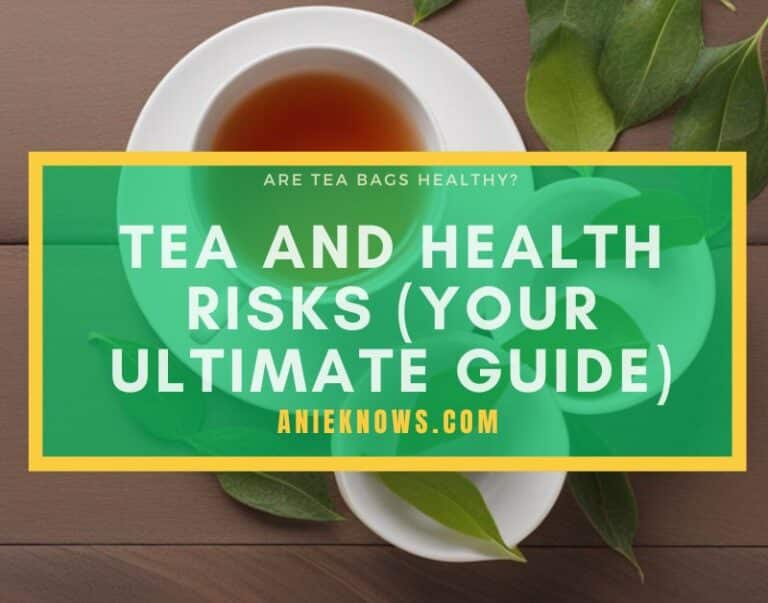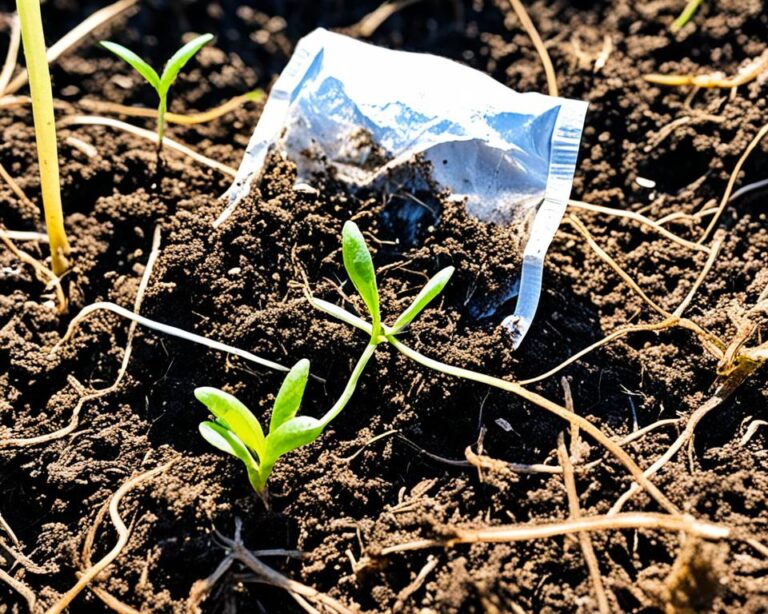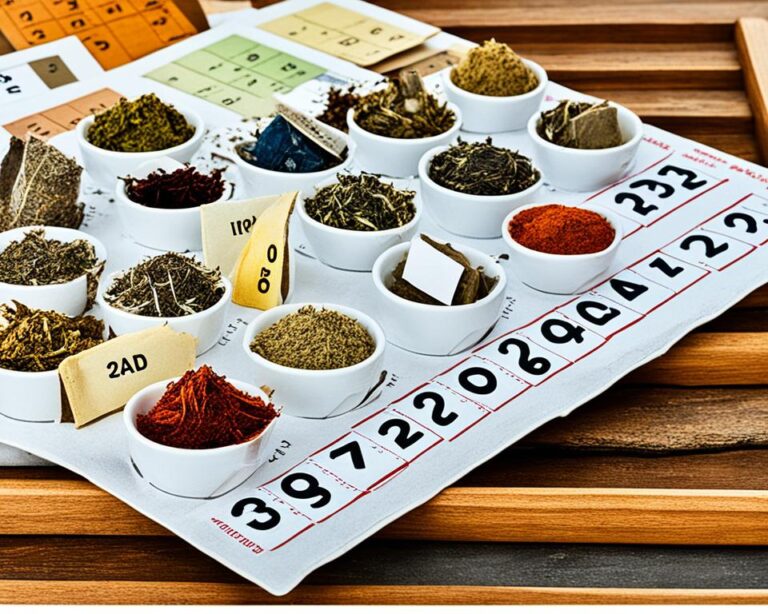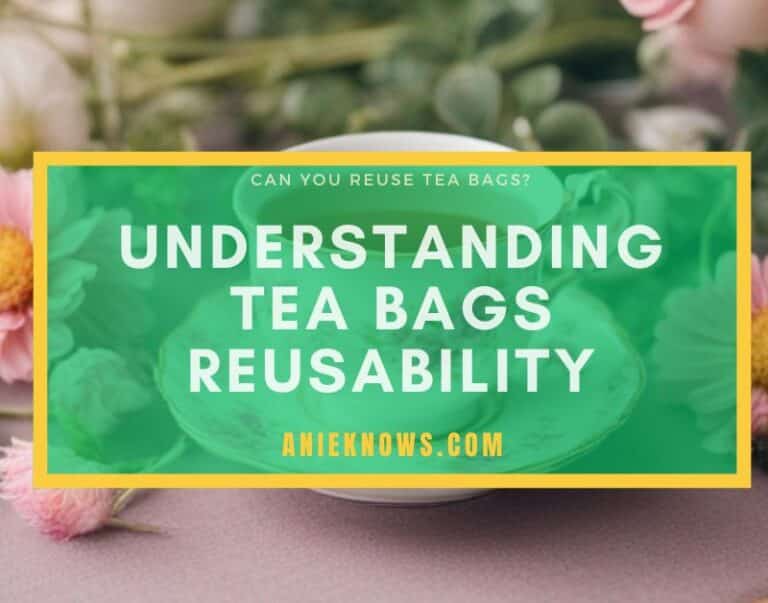Disclosure: This post may contain affiliate links. Read my disclaimer for more information.
People around the globe love drinking tea.
It’s not just about the pleasant taste.
Tea also has lots of health perks.
But, have you ever thought about the tea bag?
We usually dunk them in hot water to get the flavor.
But can you actually eat the tea bag?
This small question opens up a big topic.
It touches on health, the environment, and what consumers need to know.
Let’s look at what tea bags are made of, and if it’s safe to eat them.
This article hopes to clear up this under-looked question in our daily tea routine.
Table of Contents
Are tea bags edible? What you should know
Drinking the contents of tea bags straight might seem like a good idea, but experts urge caution due to several significant pitfalls.
True, most of the nutrients derived from Camellia sinensis leaves are released during steeping, but eating the leaves can pose risks.
Steeped tea leaves infuse water with antioxidants, polyphenols, and other healthful elements.
But eating the leaves skips this process, possibly lessening the benefits and making digestion tougher.
One key concern is upsetting your stomach.
Eating whole tea leaves can interfere with normal digestion, resulting in constipation, bloating, or stomach ache.
The fiber-rich tea leaves with their unique chemistry might be hard on the gut, especially for those with a tender tummy or digestive problems.
Additionally, the rich amount of certain components in tea leaves, like tannins, might worsen digestive troubles and restrict nutrient intake.
Tannins, recognized for their sharp taste, can cause gut irritation and unease in larger amounts, potentially worsening existing digestive problems or creating new ones.
What is inside a tea bag? (Know your risk)
Tea bags are made up of different materials.
Some aren’t good for us.
Let’s look at what might be inside them and why it could be an issue:
- Microplastics: Some tea bags have plastic in them. This plastic can leak into your tea, which could lead to health issues. For example, it’s possible that microplastics can interfere with your hormones and increase the risk of poison reaching your offspring or causing cancer. It also takes a long time to break down in nature.
- Epichlorohydrin: Paper tea bags might have epichlorohydrin. It is used to prevent the bags from falling apart. This chemical could potentially cause cancer and reproductive damage.
- Polypropylene: Some tea bags are made from polypropylene, a particular kind of plastic to stop them from breaking. This can be a problem. It could seep into hot water. This has been connected to hormonal disorders. Propylene and epichlorohydrin are both not eco-friendly, they can stay for hundreds of years without decomposing, causing pollution.
- Chemical additives: Paper tea bags could have chemical additives, like chlorine dioxide for bleaching paper. This could cause health problems.
- Tea leaves: While tea leaves are safe to eat, most of the good stuff goes into the water when you brew it. Eating tea leaves might not give you many benefits. It could cause stomach problems like constipation, bloating, or pain.
For safer use of tea bags, you could switch to loose leaf tea or select tea bags created from eco-friendly elements like biodegradable, plastic-free, organic, or plant-based materials.
If tea bags are your only option, choose ones made from nature-friendly materials such as paper or cotton.
Also, avoid ones with staples, glue, or white paper as they might have chemicals.
Don’t forget, correct storage of tea bags helps you steer clear of unwanted contamination.
What if my tea bag broke, can I eat what’s inside?
So, your tea bag tears and out come the leaves.
What now?
It’s no big deal if you swallow them.
They’re the same leaves you’d normally steep to make tea.
But be ready for a change.
The taste?
Probably more intense.
The texture?
It may not be what you’re used to.
Still, if you’re unsure about downing leaves without steeping them first, you can take steps to avoid it.
Try sorting out the leaves with a fine-mesh strainer or opt to toss the loose tea bag.
Of course, always be aware of any allergens or extra substances lurking in your tea leaves, especially if you have food allergies or sensitivities.
To sum it up, swallowing tea leaves isn’t bad for you, usually. But, make choices that ensure your enjoyment and safety when you drink tea.
Can eating tea bags kill you?
There’s no report of people dying because of eating tea bags. But it is not recommended.
This is because of the content of the tea bags that may pose a risk to you, such as epichlorohydrin and polypropylene.
Both of which can wreck your system.
Unhealthy chemicals such as chlorine dioxide are sometimes used in the process too.
This makes the tea bags look whiter, which may damage our health.
Even the way paper tea bags are sealed can be a risk.
They often uses a plastic-based glue that can dissolve into the tea when it’s in hot water.
That glue could also be harmful if we ingest it.
There may also be danger from toxic stuff like:
- Fluorine compounds
- Arsenic
- Radium salt
- Aluminum
- Copper
- Lead
- Mercury
- Cadmium
- Barium
- Nitrates
An alarming fact is that drinking more than five liters of tea made from tea bags each week might lead to dental problems or even damage to your bones due to fluorosis.
Moreover, harmful heavy metals can accumulate over time in our bodies.
Of course, drinking it once may not harm you.
I’ve done this before and nothing happened to me.
But what we don’t want is for those toxic substances to accumulate inside our bodies and cause potential risks in the long run.
The good news is that there’s no reported incident of people dying from tea bags so far.
This is a good thing, right?
Final Thought
So here’s the thing, eating a tea bag might be doable, but it’s not smart because it could be risky.
Stuff like tiny plastics, epichlorohydrin, and polypropylene – all used when making tea bags – can cause problems.
They can disrupt hormones, increase the chance of cancer, and even harm the planet.
Plus, heating them with hot water could release even more dangerous chemicals.
Nobody has died from munching on tea bags, but long-term, swallowing the dangerous stuff inside could hurt your teeth and bones.
But don’t worry, you can avoid all this.
Just pick loose tea or earth-friendly tea bag options.
Store them properly and be careful about how much you drink, and you’ll lower the risks.
In the end, smarter tea habits mean better health and a happier planet.

